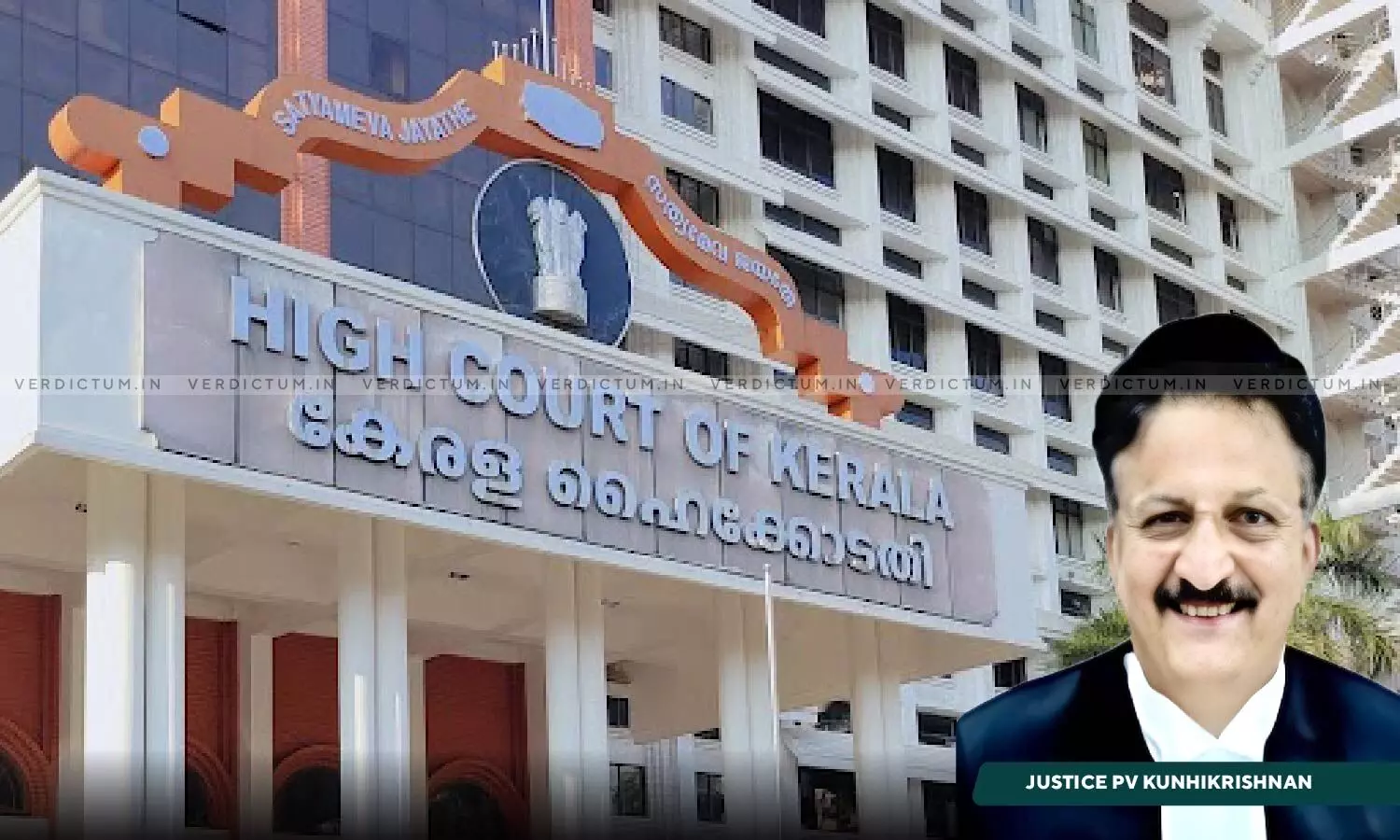
Remove Illegal Religious Structures On Government Lands: Kerala High Court Directs State
 |
|The Kerala High Court directed that the State should take necessary steps to remove illegal religious structures on government lands.
The Court was considering a writ petition filed by Plantation Corporation of Kerala Limited against the State authorities.
A Single Bench of Justice P.V. Kunhikrishnan said, “I am of the considered opinion that the Chief Secretary of the State should issue direction to all the District Collectors in the State to get a report from the Village Officers and Tahsildars to conduct an enquiry to find out whether any illegal religious structures including the erection of unauthorized stones or cross or other structures by any religious group is there in the Government land. Based on the report of the Village Officers and Tahsildars concerned, the District Collectors of the State should take necessary actions within a time schedule to evict all illegal religious structures so that we can live with communal harmony to strengthen the country as a ‘SOVEREIGN SOCIALIST SECULAR DEMOCRATIC REPUBLIC’ as enshrined in the preamble of our Constitution of India.”
The Bench observed that if there are any illegal religious structures or buildings in any Government land, the Government should take necessary steps to remove the same forthwith.
Standing Counsel Rajesh N. appeared for the petitioner while Government Pleader Riyal Devassy appeared for the respondents.
In this case, the petitioner, the largest Plantation Company in public sector being formed in 1962, was granted a long term lease of immovable property via an indenture of lease executed between the Kerala State and the petitioner. The leased property was the property of the Government and the petitioner was a lessee of the same. As per the petitioner, there were consistent attempts of certain vested interests to establish a temple in one of the estates of the petitioner Corporation. Such acts had the effect of the property of the corporation being trespassed upon by private individuals in the name of establishing a temple.
When such a move was opposed, there was a serious law and order situation and ultimately the Revenue Divisional Officer and the police intervened in the issue. Subsequently, the matter was resolved and the trespassers agreed that no further encroachment or constructions would be carried out. It was submitted that, violating such undertaking, the respective encroachers, who were aided by the respondents and their associates, attempted to trespass the property of the corporation. The petitioner submitted representation before the Revenue Divisional Officer but even thereafter, there were several attempts by religious organizations to trespass the same. Hence, the petitioner approached the High Court.
The High Court in the above context of the case noted, “The preamble of the Constitution of India starts with the words, “WE, THE PEOPLE OF INDIA, having solemnly resolved to constitute India into a SOVEREIGN SOCIALIST SECULAR DEMOCRATIC REPUBLIC------”. Originally, it was “Socialist Democratic Republic” and it was substituted by the Constitution (Forty-second Amendment) Act, 1976 to “Sovereign Socialist Secular Democratic Republic”. Our constitution gives religious freedom to all citizens. Subject to public order, morality and health, every religious denomination or any section thereof shall have the right to establish and maintain institutions for religious and charitable purposes as per Article 26 of the Constitution of India. That does not mean that the citizen can do anything which may lead to communal disharmony. Nowadays, it is a trend to erect some stones or cross in public places and government land claiming religious importance to that place and thereafter to start worshipping these stones and cross with religious colour. Subsequently, this will lead to temporary constructions and ultimately permanent construction treating it as a religious place.”
The Court added that if people start constructing illegal religious structures and buildings in public places and government land, it may create friction among the religions which will definitely lead to religious disharmony.
“I am of the considered opinion that the illegal religious places in Government land also should be removed forthwith. The respondent Nos. 1 to 7 will take the necessary steps to identify the properties of the petitioner - Corporation covered by Ext.P1 lease deed and evict all encroachers therefrom within a time frame”, it said.
The Court, therefore, directed the respondents to identify the properties of the petitioner covered by lease deed and evict all encroachers including illegal religious structures constructed in the Government land, forthwith, at any rate, within a period of six months.
“The Chief Secretary of the State will instruct all the District Collectors in the State to conduct an enquiry through the Tahsildars, Village Officers etc. to find out whether any illegal unauthorized stones or cross or other structures are erected with a religious colour in any Government land by any religious group. … Once any illegal religious structures are found in the Government land, the jurisdictional District Collectors with the aid of the Police department shall evict the illegal religious structures from the Government land, within a period of six months after the enquiry is conducted as directed above, of course after hearing the affected parties if any”, it further ordered.
Accordingly, the High Court disposed of the writ petition and issued necessary directions.
Cause Title- The Plantation Corporation of Kerala Limited v. The State of Kerala & Ors. (Neutral Citation: 2024:KER:35291)
Appearance:
Petitioner: Standing Counsel Rajesh N.
Respondents: Government Pleader Riyal Devassy and Advocate K.K. Sethukumar.